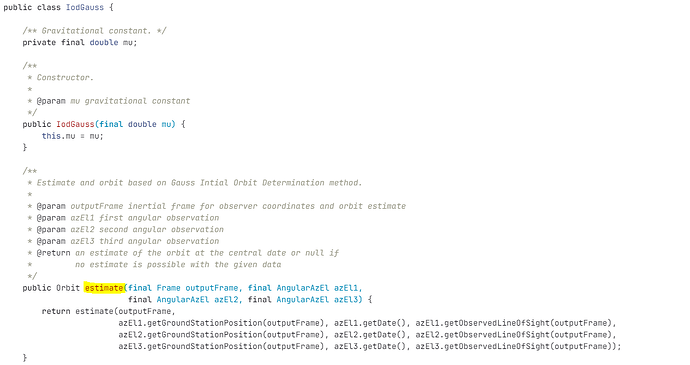Can Orekit determine an initial orbit for a satellite without providing an initial orbit, only given some observational data (time T, distance R, azimuth A, and elevation E)?
Hi @lebronjames
Congrats for the gold medal at the Olympic games! ![]()
Yes, it can. You can look at the Initial Orbit Determination (IOD) algorithms provided in Orekit. For your case (i.e., Az/El + Ranging) we have 3 IOD methods:
- Laplace
- Gooding
- Gauss
Laplace and Gauss only use 3 angles. Godding algorithm uses 3 angles + 2 ranging.
I can recommend you to start by using the Gauss method which provides an interesting accuracy.
Some documentation:
- Orekit IOD package: src/main/java/org/orekit/estimation/iod · develop · Orekit / Orekit · GitLab
- A very interesting thesis presenting the accuracy of IOD methods depending the orbit type (i.e., LEO, SSO, GEO, MEO): https://oaktrust.library.tamu.edu/bitstream/handle/1969.1/ETD-TAMU-2011-12-10242/SCHAEPERKOETTER-THESIS.pdf
- Some Orekit examples: src/test/java/org/orekit/estimation/iod/IodGaussTest.java · develop · Orekit / Orekit · GitLab
Best regards,
Bryan
![]()
I finally have an explanation for the success and accuracy of the American team’s shots. The guys calculate the trajectory of the ball with Orekit. As a result, the success rate for 3-point shots is hardly surprising.
Hi,bcazabonne!
I looked at the IOD package link, but I couldn’t find the underlying implementation of the estimate function in the Gauss algorithm. Do I need to write the underlying code for the estimate function myself, or is it located elsewhere?
Cheers,
James
